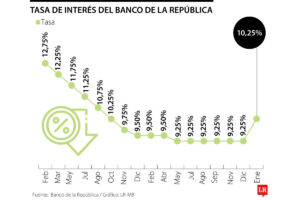The Senate voted to approve a bill that raises the debt ceiling for two more years, sending the legislation to President Joe Biden’s desk just days before the US potentially runs out of money to pay its bills.
The final count was 63-36. There were 17 Republicans opposed and four Democrats who voted against it. The House approved the legislation 314-117 Wednesday night.
The Congressional approval takes the full faith and credit of the US off the negotiating table through the next presidential election and gives the markets an extended breather on an issue that regularly threatens economic chaos.
The concessions needed to get the deal done proved to be unpopular with certain members on both sides of the aisle, complicating efforts to squeeze legislation through Congress before a default on US debt. Treasury Secretary Janet Yellen warned that default could happen as early as Monday.

The centerpiece of the pact negotiated by Biden and House Speaker Kevin McCarthy is a cap on federal spending. It holds spending flat for 2024 and imposes new limits for 2025 without touching Social Security, Medicare, or the military. In exchange, the nation’s borrowing limit is boosted until January 2025.
The legislation also increases work requirements to qualify for food assistance, an incentive for people to find jobs. That measure proved unpopular with progressive Democrats.
Some House Republicans wanted the spending cuts to be deeper, as proposed in a separate piece of legislation passed by GOP lawmakers in April. Senate Republicans had a different concern: that the legislation didn’t adequately fund the military.
The bill does have a 3% increase in defense spending for fiscal year 2024 and a 1% increase in 2025, but Republican Sen. Susan Collins said the 1% rise actually amounted to a decrease when accounting for the pace of inflation.
Majority Leader Chuck Schumer had to navigate around those concerns as well as votes on a series of 11 amendments, including one from Virginia Democratic Sen. Tim Kaine stripping language pertaining to a natural gas pipeline project from West Virginia through his home state.
“I support improving the permitting process for all energy projects. But Congress putting its thumb on the scale so that one specific project doesn’t have to comply with the same process as everyone else is the definition of unfair and opens the door to corruption,” he said.
If any of those amendments had passed, the bill would have gone back to the House.
White House staff also called senators individually on Thursday. Its legislative affairs team made contact with every single Senate Democratic office about the vote.
“We can’t send anything back to the House,” Schumer told reporters Thursday. “That would risk default, plain and simple.” The chamber voted down all 11 amendments before passing the bill and moving it onto Biden’s desk.
Later, once he was assured that the bill would receive enough votes, Schumer said: “America can breathe a sigh of relief, because we are avoiding default.”







